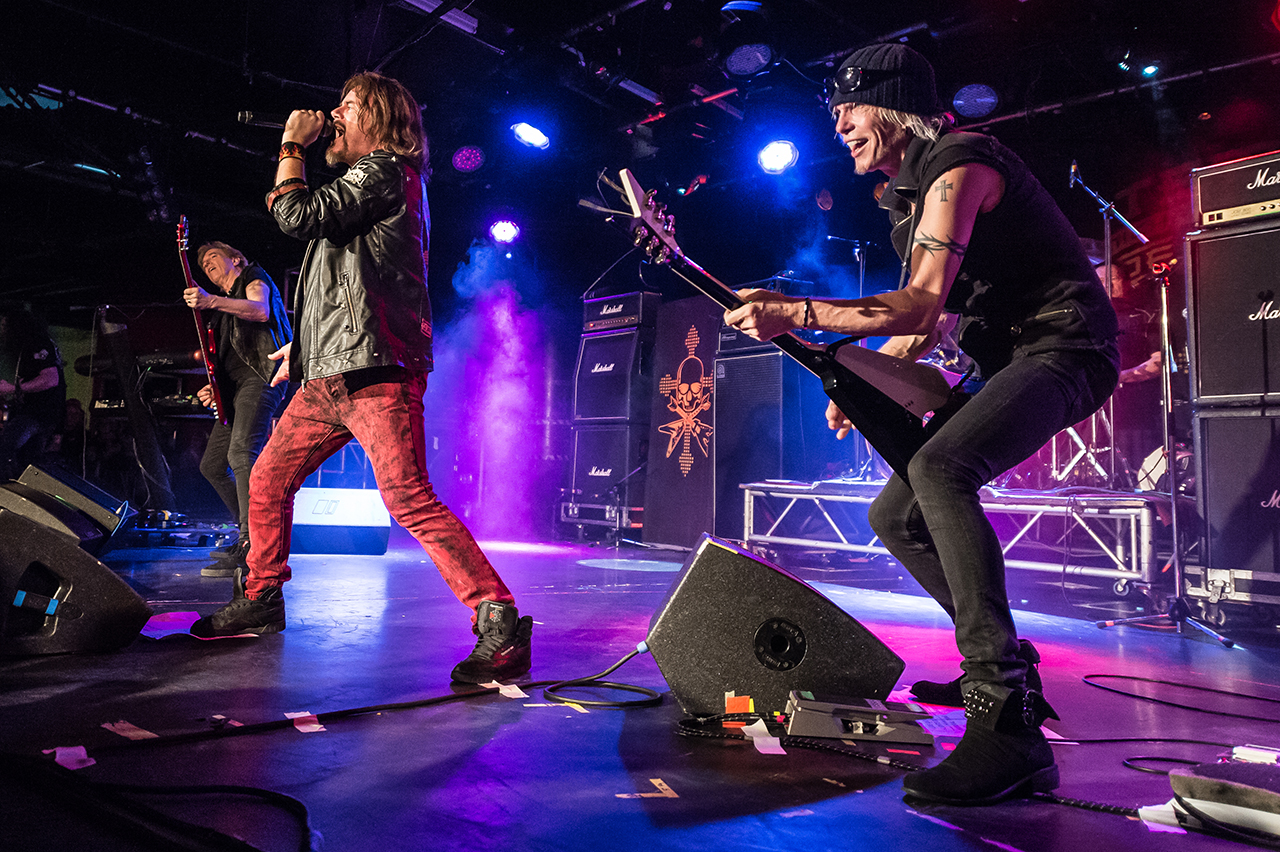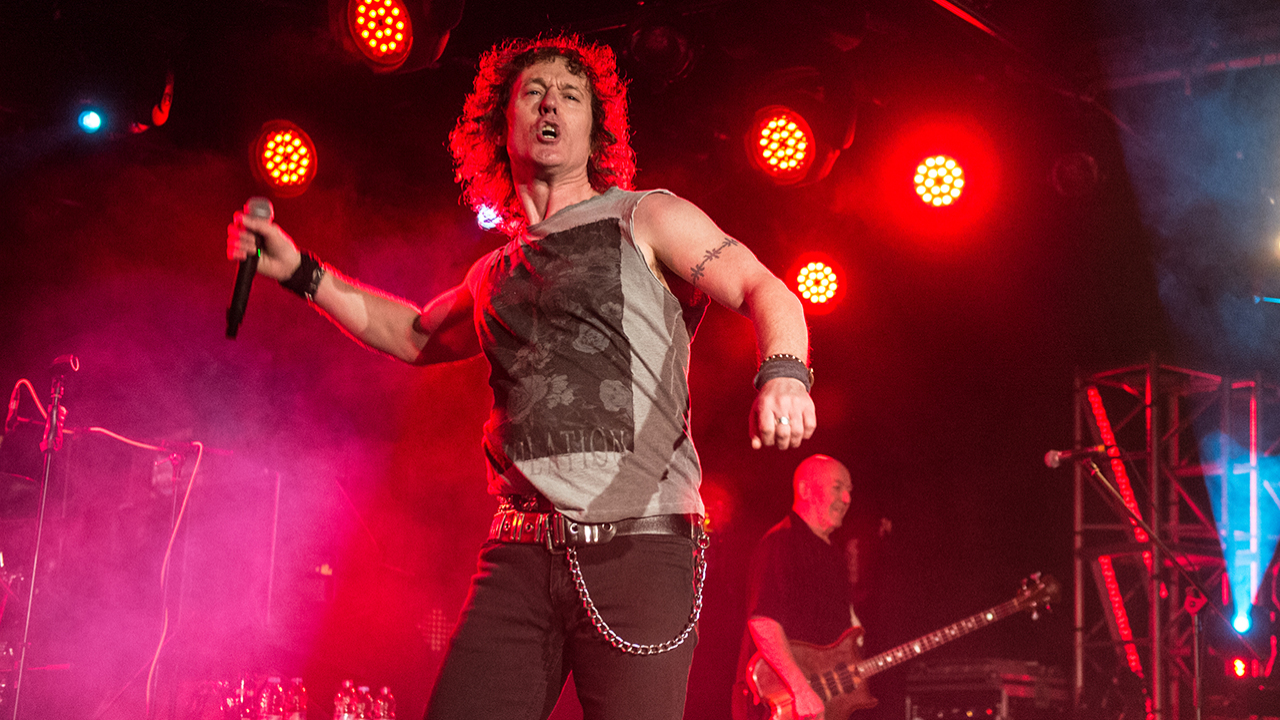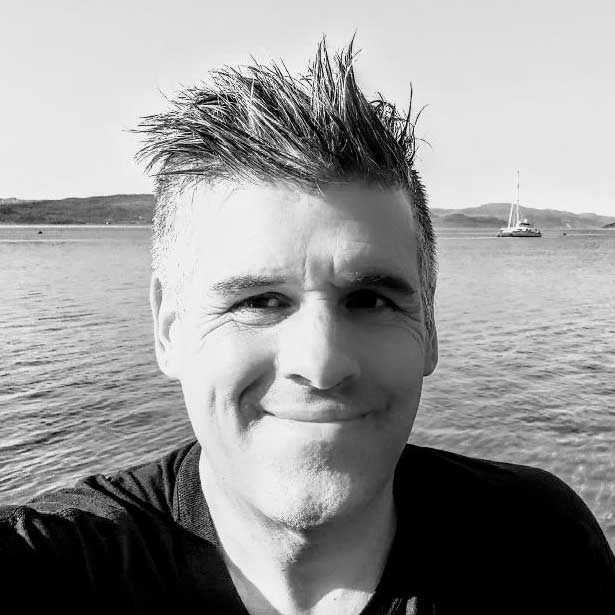Menacing rain clouds converge on west Somerset as the third annual Giants Of Rock festival begins. This late-January gathering falls at the end of a terrible month in which we lost Lemmy, David Bowie, Dale Griffin, Glenn Frey, Signe Anderson and Paul Kantner in quick succession. Most bands on the bill belong to that same generation. Some even counted Bowie, Griffin and Lemmy as friends and collaborators. Mortality hangs heavy in the air.
But the mood inside Butlins is mostly relaxed and celebratory, a lust for life possibly amplified by recent losses. Indeed, if Graham Bonnet is anything to go by, hard rock may well contain the key of eternal youth. In Earth years, the former Rainbow and Michael Schenker Group frontman is officially 68, but he could easily pass for two decades younger. His wiry body, much like his Ray-Ban shades and new-wave suit, remain stranded somewhere in the early 1980s. He still commands an operatic voice too, though he hits a few hoarse wobbles during his Friday night show, apologising for not being match-fit due to jet lag.
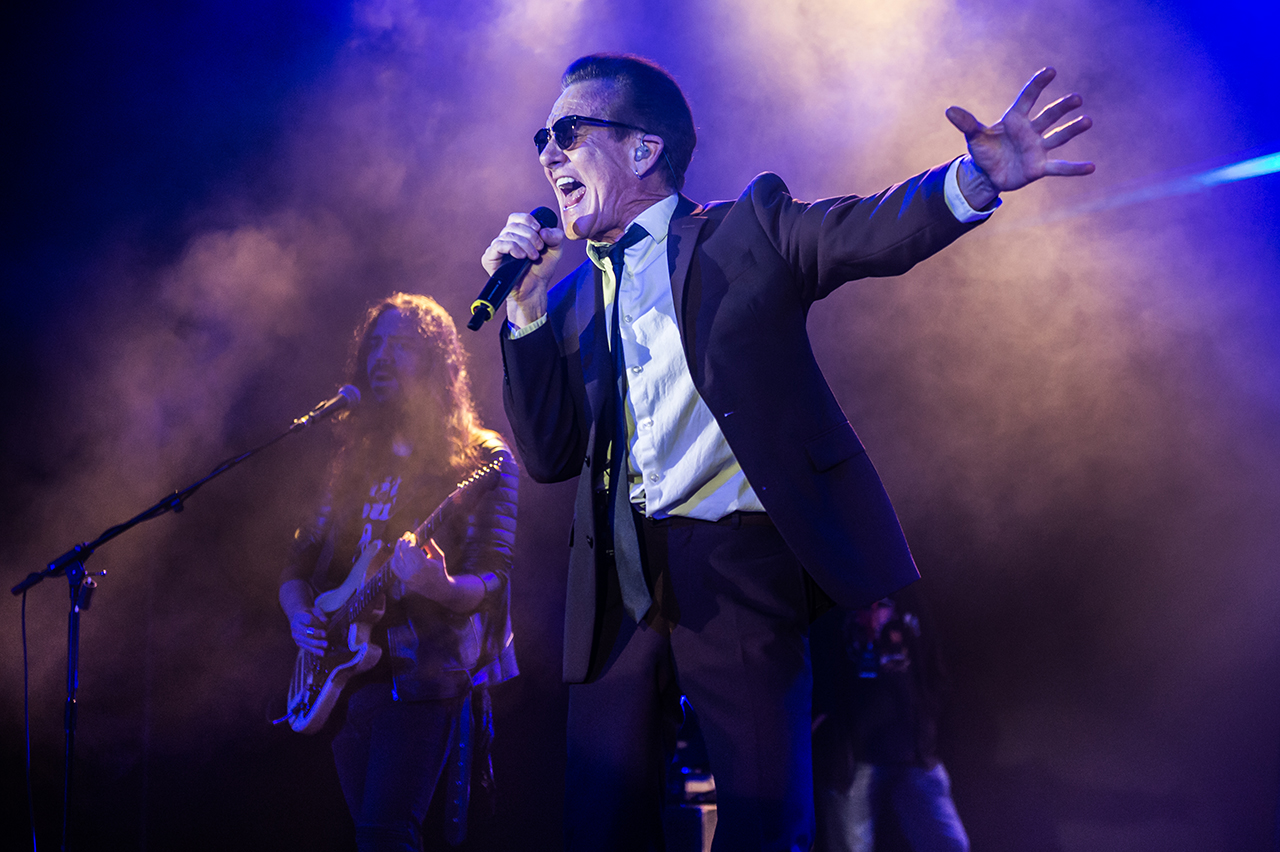
With a youthful new band behind him, Bonnet roars through his four-decade back catalogue mixing new material with Rainbow, MSG and Alcatrazz cuts. He pays tribute to the late Cozy Powell before inevitably climaxing with Since You’ve Been Gone, teasingly introduced as “the reggae version”. And then – boom! – that familiar blast of muscular, melodic, octave-vaulting pop-rock arrives to wallop you around the ears like an unusually violent old friend.
John Verity and Russ Ballard, two former members of Argent, both play separately over the weekend. Verity mostly sticks within pretty routine blues-rock limits, but he performs with sweat-soaked conviction, wrapping up his set with a combustible cover of Purple Haze, complete with a scorching Star Spangled Banner intro. It’s a welcome reminder of how Hendrix invented the entire noise-rock genre almost single-handedly.
Verity returns later for a guest appearance during his former bandmate’s set. “We haven’t got any Argent songs,” quips Ballard. He is joking, of course, and he soon has the entire crowd punching the sky to Hold Your Head Up and the mighty God Gave Rock And Roll To You. Still a dapper frontman and dextrous guitarist at 70, Ballard is also a one-man jukebox, rolling out the numerous hits he wrote for other artists, from So You Win Again to the much-covered Since You’ve Been Gone, getting its second airing of the weekend.
Former Cockney rebel turned gentleman folk-rocker Steve Harley plays to a packed hall of chatting senior citizens, who virtually drown out the subtle shadings of his current band. Even so, everybody pays attention for the obligatory closing rendition of Make Me Smile (Come Up And See Me), strummed on a trio of acoustic guitars, with Harley milking long mid-song pauses to crank up the sing-along potential.
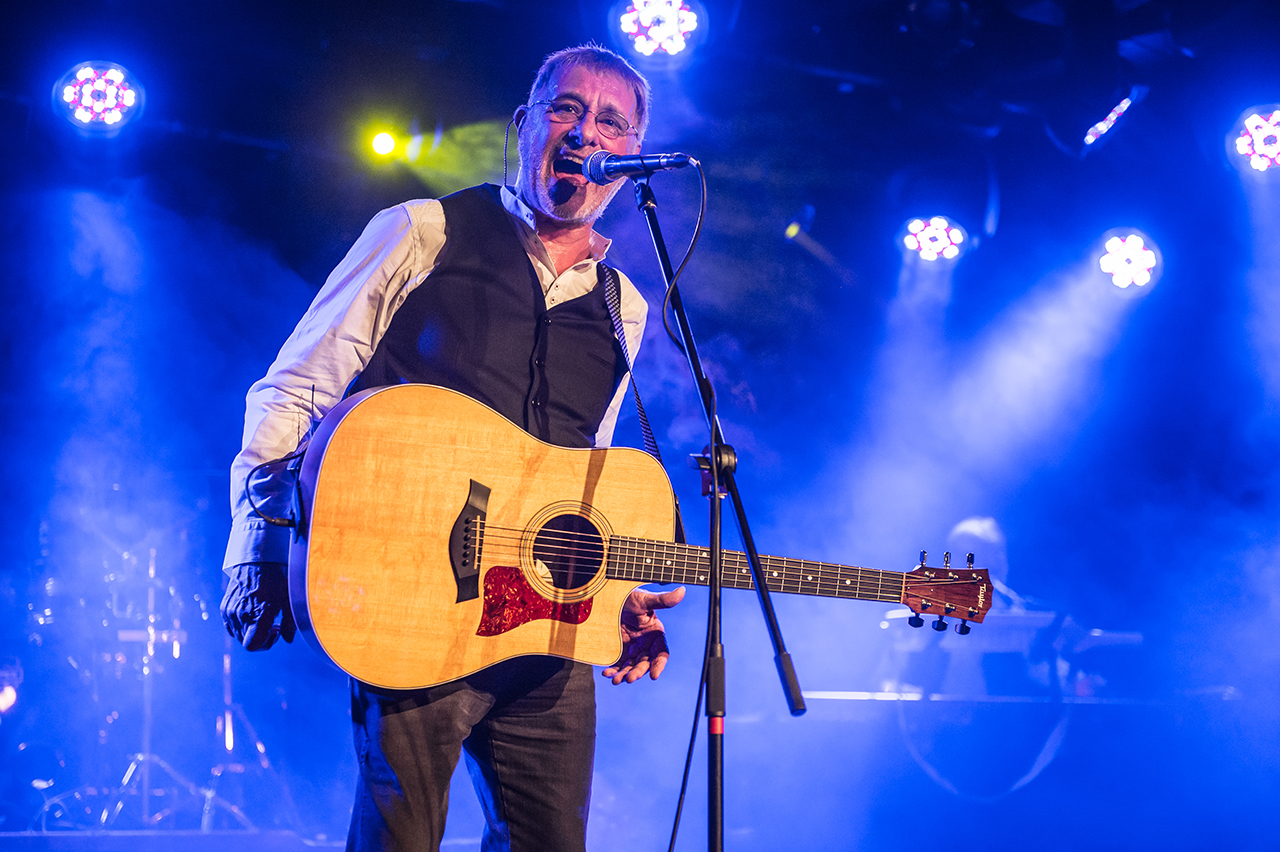
The relative youngsters of the festival, Big Country inject a welcome blast of post-punk adrenaline into an otherwise mostly trad-rock weekend. After more than three decades, their yodelling war cries and jagged New Wave power chords still strike a stirring Celt-punk nerve. New vocalist Simon Hough is also shaping up as a worthy replacement for Mike Peters, though the loss of the late Stuart Adamson still feels like a gap that will never be filled.
Midway through Big Country’s set, guitarist Bruce Watson pays tribute to fellow Dunfermline natives Nazareth, calling them “the world’s greatest rock’n’roll band”. That may be stretching it, but these hard-riffing headbangers certainly play the most balls-out set of the weekend. Currently down to one original member, Nazareth have essentially Doctor Who-ed into a younger version of themselves. The latest in a Spinal Tap-style parade of lead singers is Carl Sentance, who reminds us that hard rock sometimes works best as a sweaty, pounding, clobbering, slobbering, hairy-testicled beast.
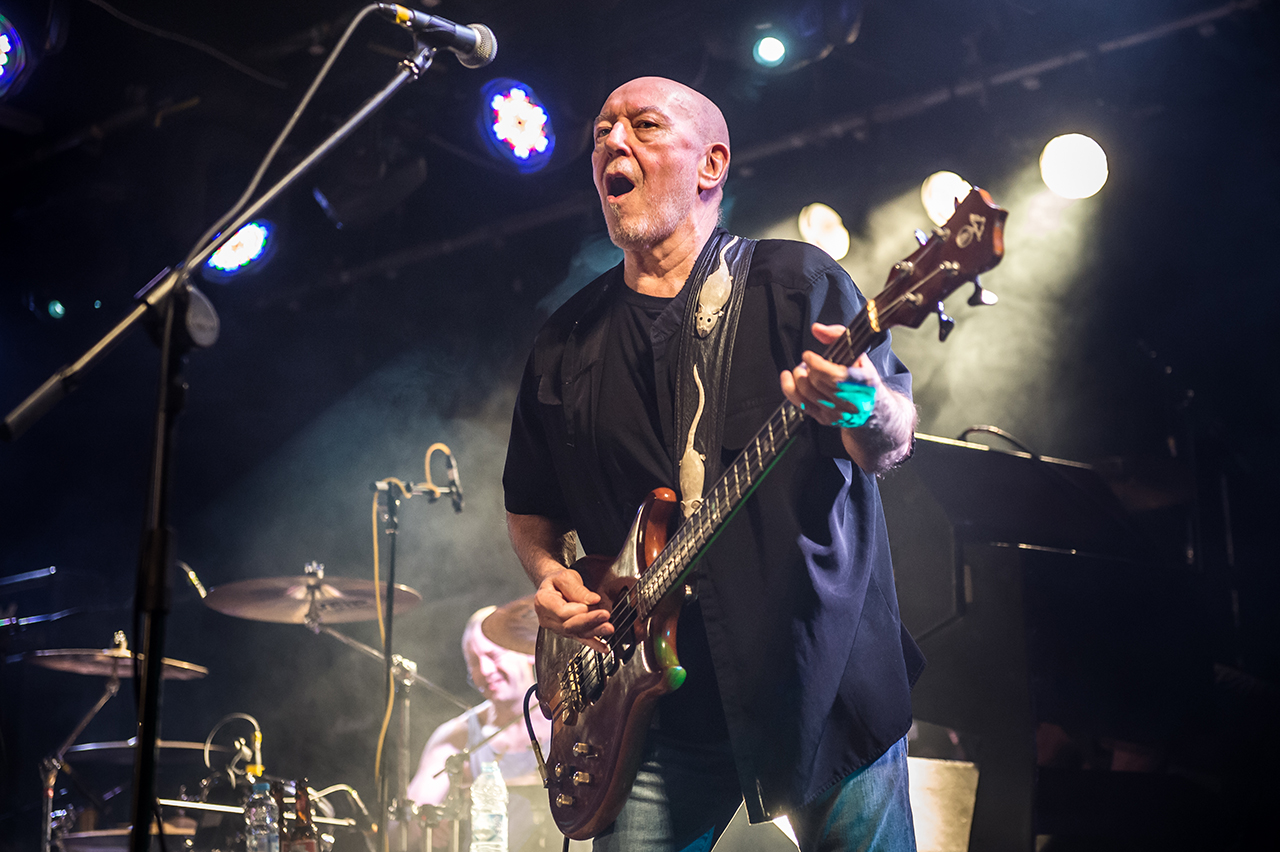
“I haven’t been to Butlins since 1962,” quips Gary Brooker of Procol Harum. “The chalet girls have got slightly older…” The last man standing from Procol’s original line-up, Brooker is quite the dry comedian onstage. But the band’s current sound is far from a retro cabaret act, with their proggy, jazzy, psychedelic roots still active ingredients in the mix. There are echoes of Robert Wyatt and vintage Floyd in here, from wistful pastorals like An Old English Dream to the darkly lysergic fantasia The Dead Man’s Dream. Over slow tidal surges of Hammond organ, Brooker sings of sleepy English towns with a sepia-tinted soulfulness, his grainy voice lending these ancient songs a tender ache that they lacked half a century ago.
Inevitably, Procol end with their signature anthem A Whiter Shade Of Pale. But first Brooker wrong-foots us with a string of false starts, from Percy Sledge’s When A Man Loves A Women to Bob Marley’s No Woman, No Cry. It’s a nicely irreverent twist on a baroque’n’roll milestone that still divides fans and critics. But then the song eventually unspools in a more languid, elegiac form than its pompous reputation suggests. Such is the power of a 70-year-old voice over a 21-year-old: the bombast falls away and the autumnal grace notes shine through.
Two survivors of Mott The Hoople’s classic line-up also play Giants of Rock, beginning with a late-night set by Mick Ralphs and his Blues Band. Ralphs favours his more rootsy, ballsy Bad Company tracks like Can’t Get Enough and _Feel Like Makin’ Love _over anything by Mott. It’s a pretty trad show, but it benefits from the powerhouse growl of recent recruit Adam Barron, a young singer who once competed on The Voice.
The elder statesman of the festival is fellow Mott legend Ian Hunter, who plays a headline-worthy set on Sunday night. Even at 76 he remains a wiry and energised performer, lurking behind his signature shaggy mane and implacable shades, a mercurial Dylanesque figure in both voice and stage presence. Backed by the Rant Band, a well-drilled young outfit around half his age, Hunter freewheels through a fast-paced 90-minute set with scarcely a pause for breath. Switching between guitar and piano, he weaves together blues and funk, glam and punk, wistful ballads and a ragged cover version of The Velvet Underground’s Sweet Jane.
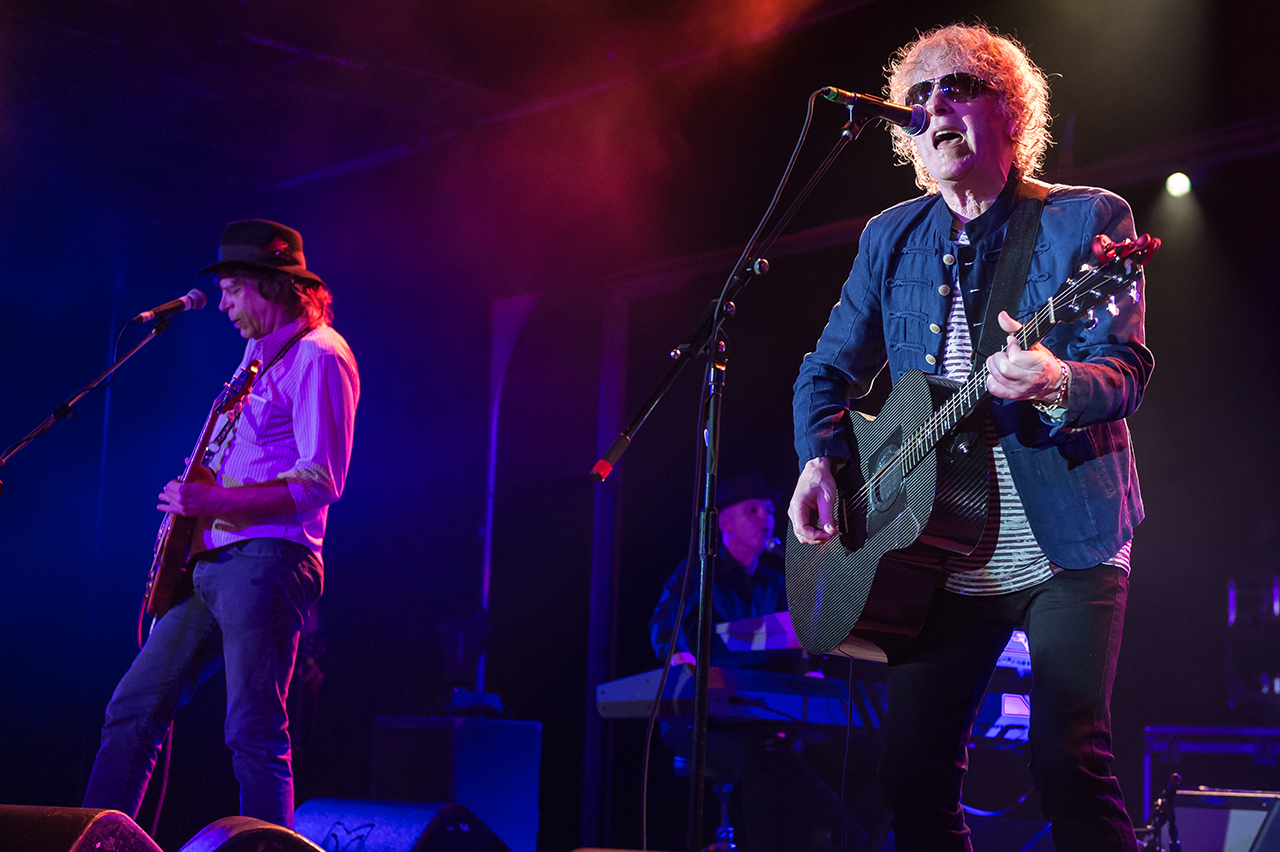
Hunter also keeps his stage comments dry and minimal, aside from reminding us that he launched his career at a Butlin’s talent contest in 1956. Among the obligatory Mott tracks are rollicking, piano-pounding takes on All The Way From Memphis and Roll Away The Stone, which confirm the theory that these proto-glam hooligans left a big impression on Bruce Springsteen. Only the encore version of _All The Young Dudes _disappoints, strangely sluggish and subdued when it should have blown the roof off. Hunter also makes no mention of Bowie or Griffin, an oddly ungracious omission given recent events. But he still radiates the easy magnetism of somebody who has spent more than half a century in the rock’n’roll spotlight.
Giants Of Rock is a warm-hearted celebration of vintage talent, but not without its flaws. The clashing schedule of big-name acts playing against each other on different stages feels clumsy and unneccesary, when there is clear potential for the kind of staggered timetable seen at other similar festivals. The tiny number of female and non-Caucasian performers on the bill is also striking, even by the heavily white, male norms of classic rock. More diversity and new talent could easily fill the long gaps in the daily timetable, sowing the seeds for the rock giants of tomorrow.
It is past midnight on Sunday when Michael Schenker’s Temple of Rock finally arrive to close the festival, 40 minutes behind schedule. “Good evening. Or should I say good morning?” beams Dougie White, a leather-clad hairball of pure energy just an inch away from one of Jack Black’s larger-than-life comic creations. From_ Doctor Doctor _and Lights Out to new single Vigilante Man, Schenker and his crew are reliably loud, preposterous and Flying V-tastic. Raising a middle finger to the Grim Reaper for another year, the third annual Giants Of Rock starts like a wake, but finishes like a party.
